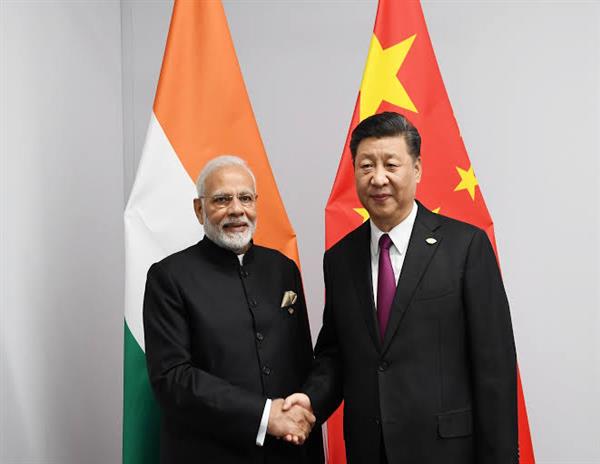India's relationship with China in terms of trade has witnessed both opportunities and challenges over the years. The economic ties between the two countries have been characterized by significant bilateral trade, but also by trade imbalances, disputes, and geopolitical tensions.

India and China have a long history of trade relations dating back centuries. In recent years, the trade volume between the two countries has grown substantially. China has become India's largest trading partner, with bilateral trade reaching billions of dollars annually. The trade relationship encompasses a wide range of sectors, including electronics, machinery, chemicals, pharmaceuticals, textiles, and more.
However, the trade balance has been heavily skewed in China's favor, with India facing a persistent trade deficit. This trade imbalance has been a concern for India, as it contributes to its current account deficit and poses challenges for domestic industries. India has sought to address this issue by calling for greater market access to Chinese goods, encouraging Chinese investments in India, and promoting Indian exports to China.
Trade disputes have also emerged as a significant aspect of India-China trade relations. Both countries have engaged in anti-dumping measures and trade remedies against each other. These disputes have involved sectors such as steel, solar panels, and chemicals, with allegations of unfair trade practices and dumping of goods. Resolving these disputes and ensuring a level playing field for trade remains an ongoing challenge for both nations.
Geopolitical tensions and border disputes between India and China have further complicated their trade relationship. The 2020 border clash in the Galwan Valley led to heightened tensions and impacted trade ties. Following the border incident, there were calls in India for boycotts of Chinese goods and restrictions on Chinese investments, leading to a decline in bilateral trade and a reevaluation of economic relations.
In response to the border standoff, India took steps to reduce its economic dependence on China. It introduced measures such as stricter scrutiny of Chinese investments, bans on Chinese mobile applications, and initiatives to promote domestic manufacturing and self-reliance. These actions have resulted in some disruptions to trade and investments between the two countries.
Despite the challenges and tensions, both India and China recognize the significance of their economic relationship and the potential benefits it holds. Efforts have been made to address trade imbalances, enhance market access, and promote greater economic cooperation. Bilateral trade dialogues and agreements have been pursued to facilitate trade and investment flows.
It is worth noting that the evolving geopolitical dynamics, border disputes, and other factors continue to influence India-China trade relations. The trajectory of this relationship will depend on various factors, including the resolution of outstanding issues, the development of trust, and the promotion of fair and mutually beneficial trade practices.
Also Read: Importance Of Terms & Conditions In Foreign Trade, Case Study Of India-USA